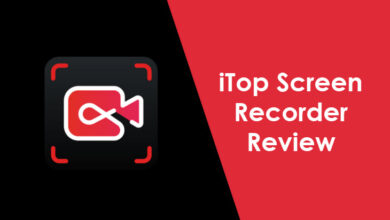Corporation Tax vs. Personal Tax for Small Business Owners: How to Keep Both Under Control

Owning a small business is fun – but where taxes are concerned, the fun turns to a nightmare. In the UK, a lot of business owners combine the roles of corporate and personal tax without necessarily knowing the difference between the two, how they are related to each other, and how they can be effectively managed.
The inability to take control over the two may culminate in unnecessarily high tax bills, penalties or even a cash flow crisis. This is why financial stability is closely connected with a clear understanding and the right professional support that is provided by means of corporation tax services and personal taxation services.
In this guide, we are going to unpack the differences between the two taxes, pitfalls, and effective tactics to keep them in check.
Understanding Corporation Tax
Corporation tax is a tax on the profits of incorporated businesses such as limited companies, clubs and other associations.
Key points for UK small business owners:
- Who pays it? Any incorporated business registered with Companies House.
- How is it calculated? On your company’s profits after deducting allowable expenses.
- Rates: The current main rate is 25%; small profits can qualify for a lower rate.
- Filing dates: Returns have to be filed 12 months after the company’s year-end, but a payment is due 9 months and a day after the end of your accounting period.
Most companies depend on professional expertise for corporation taxes so that they can meet their deadlines, claim all eligible tax deductions and pay the minimal tax liabilities legally possible.
Understanding Personal Tax
Personal tax, more formally known as income tax, applies to individuals, including self-employed sole traders, company directors, and shareholders who receive dividends.
Important facts to note:
- Who pays it? Anyone earning income above the personal allowance (£12,570 for most people).
- Rates:
- Basic rate: 20%
- Higher rate: 40%
- Additional rate: 45%
- Basic rate: 20%
- Other: NI contributions, taxation of dividends and capital gains tax can be applicable.
- Deadlines Self-assessment returns should be filed on or before 31 January after the end of the tax year, and payment is also due on the same date.
Using personal taxation service providers will guide you through the different allowances, lower the tax burden on you, and make sure that all your commitments are fulfilled properly and timely.
Corporation Tax vs. Personal Tax—The Key Differences
While both are taxes on income, there are important distinctions:
| Feature | Corporation Tax | Personal Tax |
| Who Pays? | Companies | Individuals |
| Taxed On | Company profits | Personal earnings (salary, dividends, other income) |
| Rates | Fixed rate for companies | Tiered rates for individuals |
| Filing System | Company Tax Return (CT600) | Self-Assessment Tax Return |
| Payment Deadlines | 9 months after year-end | 31 January after tax year |
For small business owners, this means you may face both taxes—first on the company’s profits, then on the income you draw from the business.
How They Interact for Small Business Owners
When you operate as a limited company, your taxation is in two stages:
- Corporation Tax—The amount of profit earned is taxed in your business.
- Personal Tax—Personal taxes are paid when you withdraw funds out of the company (in wages or as dividends).
Example:
- The profits of your company are £80,000.
- Corporation tax of 25% = £20,000, so you are left with £60,000 in after-tax profits.
- Assuming that you get £40,000 as a mix of a salary and dividends, then you will pay personal tax on the money according to your personal allowance rates.
Taking care in tax planning in order to minimise excessive payments is a necessity in balancing these two obligations.
Common Challenges in Managing Both Taxes
There are numerous cases where small business owners experience a problem due to an underestimation of the complexity of the handling of taxes. The most typical are:
- Misunderstanding obligations – Confusing deadlines or mixing up what is applicable to the business as opposed to what applies to personal income.
- Poor record-keeping – Inadequate record-keeping; losing receipts, failure to keep track of the expenses or combining of business and personal transactions.
- Cash flow issues – Failing to save enough money to cover the future taxes.
- Missed deadlines – Leading to fines and interest charges.
- Not using allowances – Missing out on deductions such as R&D credits, annual investment allowances, or dividend allowances.
Practical Tips to Keep Both Taxes Under Control
1. Separate Business and Personal Finances
Make sure you open a special business account to have all the income and expenses organised. This simplifies the computation of corporation and personal tax.
2. Maintain Accurate Records
Keep records of transactions, store receipts, and generate profit reports in real time using cloud-based accounting software.
3. Plan for Taxes Throughout the Year
Don’t wait until the end of the year; instead, try to set aside a percentage of your monthly income for corporation tax and personal tax liabilities.
4. Stay Updated on Tax Law Changes
The rates, allowances, and thresholds of taxes change on a regular basis. Professional corporate tax services and personal tax services enable you to be in the loop and be compliant.
5. Optimise Salary vs. Dividends
As a director of a company, proper organisation of income will reduce the tax to a minimum. The combination of a relatively low pay and successful dividends is also frequently the most tax-efficient way.
Benefits of Using Professional Tax Services
The UK tax system is not just about filing on time; it’s about strategic tax planning to legally minimise what you pay. Partnering with experts offers multiple advantages:
- Precision – Prevent expensive errors and penalties.
- Time Savings – Work on expanding your business and leave the compliance to the professionals.
- Tax Optimisation – Take advantage of the permissible credits and deductions in minimising the liability.
- Reduction of Stress – A feeling that you have maintained your corporation and personal tax matters in order.
For the best results, choose providers who offer both corporation tax services and personal taxation services so they can take a holistic approach to your finances.
Final Thoughts
With a small business, knowing and dealing with corporation taxes and individual taxes is not an alternative; it is an important aspect of having a successful business with regard to its financial health. Your legal liability can be reduced by segregating your obligations, maintaining detailed records, and consulting an expert, which will save you unnecessary expenses and leave more of the resources to invest again in your business.
The best thing to do? Seek the services of an expert who has a company that will provide corporation tax services and personal taxation services. This makes your business and personal finances work together and not against each other.
There is no need to be stressed about tax management—with the right strategies and support, it becomes yet another element in your success story as a business.
Contact E2E Accounting today to streamline your corporation tax and personal tax needs.



